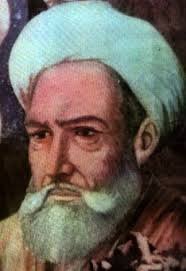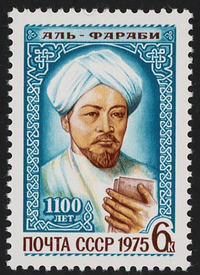Al Farabi: The Pioneer of Political Philosophy and Music Theory

Al Farabi, a towering figure of the Islamic Golden Age, was a philosopher, scientist, and music theorist whose works shaped both Islamic and Western thought. Born in the 9th century, he mastered logic, political philosophy, and metaphysics, significantly influencing scholars like Avicenna. His Virtuous City outlined an ideal society, while his music theory explored sound’s psychological effects. Al Farabi’s legacy endures in philosophy, science, and governance, making him a timeless intellectual giant worth exploring.
Early Life and Education
Al Farabi was born around 872 CE in Farab, in present-day Kazakhstan. Coming from a culturally diverse background, he was influenced by both Persian and Turkic traditions. He later moved to Baghdad, where he studied under renowned scholars and immersed himself in Greek philosophy, particularly the works of Aristotle and Plato. His education spanned various fields, including logic, music, and political theory, laying the foundation for his groundbreaking contributions to philosophy and science.
Philosophy and Political Thought
- Philosophy and Logic
Al Farabi expanded Aristotelian and Platonic philosophy, refining logic and classification of sciences. His work in metaphysics and epistemology explored knowledge, existence, and the soul, shaping Islamic intellectual traditions. - Political Philosophy
In Al-Madina Al-Fadila (The Virtuous City), he envisioned an ideal society led by a philosopher-king. Drawing from Plato’s Republic, he emphasized wisdom and virtue in governance, influencing Islamic political thought.
Music, Science, and Medicine
- Music Theory
His Kitab al-Musiqa al-Kabir (The Great Book of Music) analyzed the mathematical structure of music and its psychological effects. His theories on harmony and sound influenced both Islamic and Western music traditions. - Science and Medicine
Al Farabi contributed to physics, mathematics, and medicine while preserving Greek and Roman scientific knowledge. His interdisciplinary approach advanced scientific studies in the medieval Islamic world.
Legacy and Influence
Al Farabi’s philosophical works deeply influenced later Islamic scholars, including Avicenna (Ibn Sina) and Averroes (Ibn Rushd), who expanded on his ideas in logic, metaphysics, and political thought. His writings bridged Greek philosophy with Islamic scholarship, shaping intellectual discourse for centuries.
His impact extended to European medieval philosophy, particularly influencing thinkers like Thomas Aquinas, who engaged with his ideas on reason and governance. Al Farabi’s contributions remain relevant in philosophy, political science, and music theory, cementing his status as a foundational figure in intellectual history.
Conclusion
Al Farabi’s contributions to philosophy, science, and governance establish him as one of the most influential thinkers of the Islamic Golden Age. His advancements in logic, political theory, and music shaped intellectual traditions across civilizations. By bridging Greek philosophy with Islamic scholarship, he paved the way for future scholars and philosophical discourse. His ideas remain relevant today, offering valuable insights into knowledge, leadership, and society. Exploring his works provides a deeper understanding of his lasting impact on the world.



